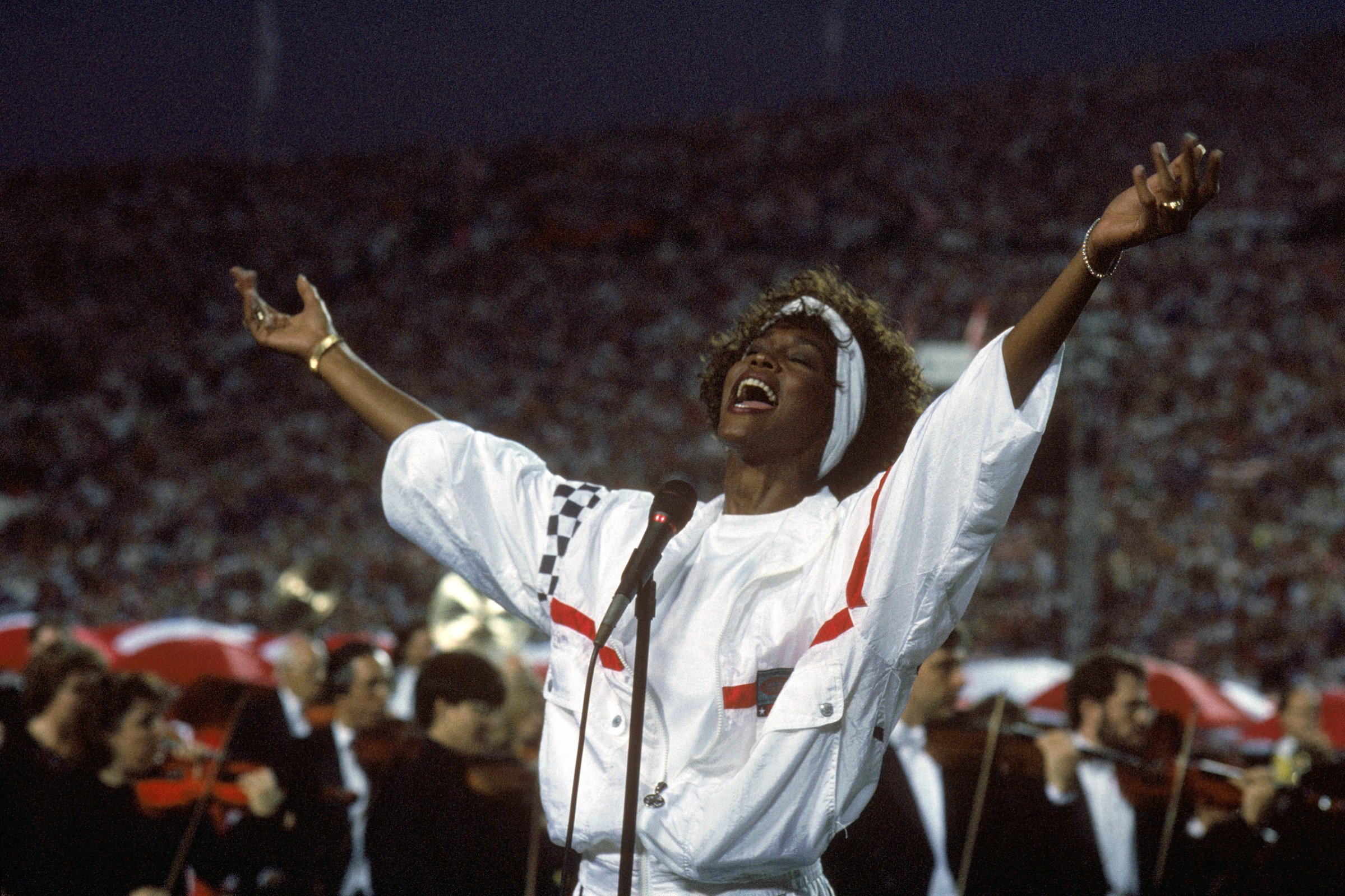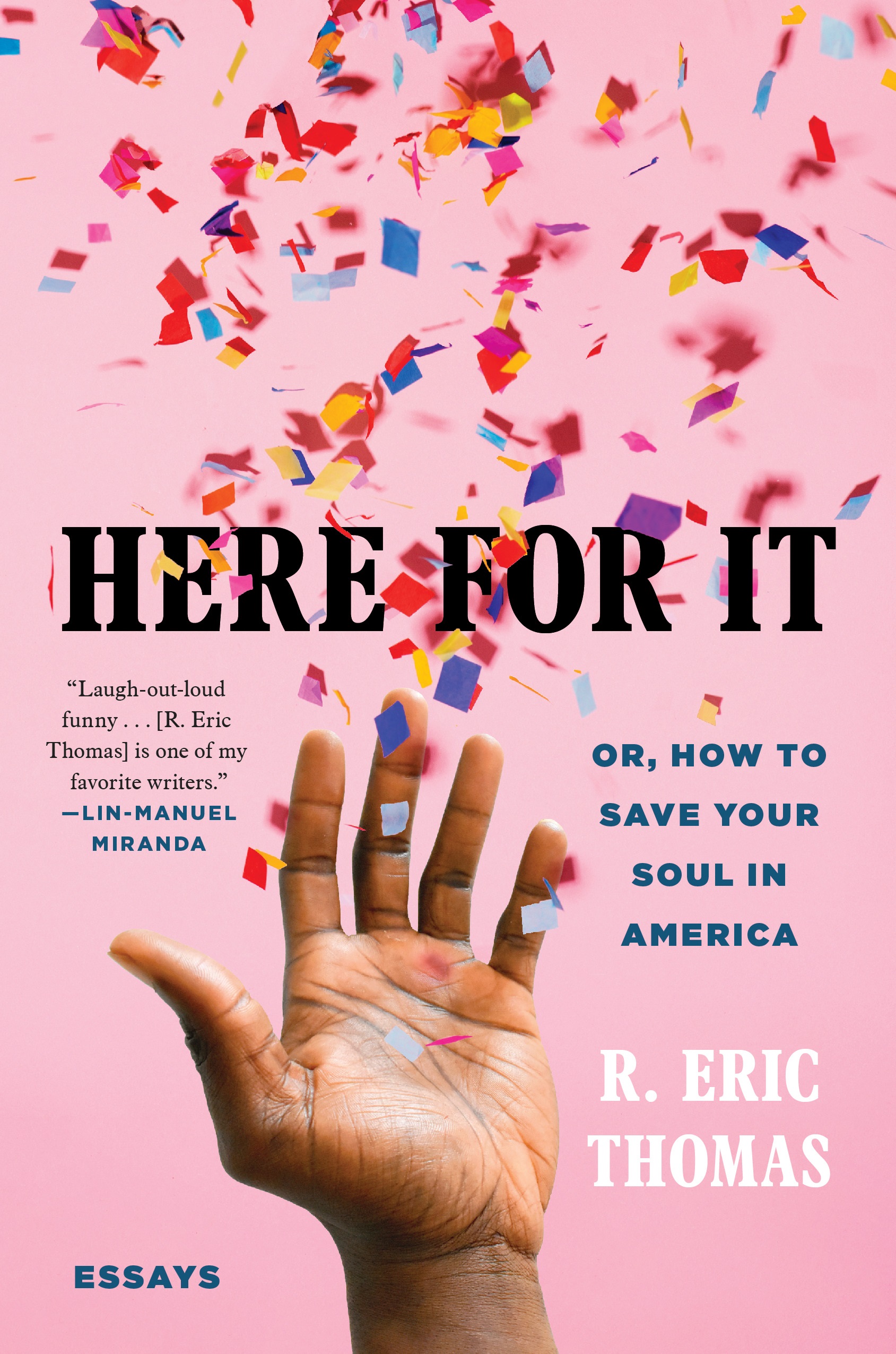
“No union is more profound than marriage, for it embodies the highest ideals of love, fidelity, devotion, sacrifice and family,” the pastor said at our wedding ceremony, borrowing from Justice Anthony Kennedy’s opinion in Obergefell v. Hodges, the Supreme Court case that made same-sex marriage equality the law of the land. I realize now that I didn’t understand the gravity of those words. Everything I did that day was a leap of faith, but when you’re in a church, all you need is faith, isn’t it?
I’d left the ceremony up to David, my now husband, and busied myself with the reception, asking one of the singers to perform a medley of three Whitney Houston songs. Originally, I’d suggested that she perform the Bodyguard soundtrack followed by The Preacher’s Wife and close with Whitney’s version of the national anthem.
David, bless his heart, actually considered having someone sing the national anthem at our wedding. Can you imagine, “The Star-Spangled Banner” at an interracial gay wedding in the heart of a sanctuary city with attendees ranging from a World War II vet to the mayor’s black LGBTQ liaison to my cousin Martin, who did multiple tours in Afghanistan, to our nephew Michael, a mixed-race boy, then 3 years old, growing up in South Carolina? Child, that place would have looked like a game of whack-a-mole, with some people standing up, some taking a knee and some looking around like, “Honey, what is happening in this place on this day?” Now, that’s church.
Step Into History: Learn how to experience the 1963 March on Washington in virtual reality
Thinking back, I almost wish we had introduced the chaos of patriotism to the proceedings. It was there already. Love is political. Church is political. Our friends and family—queer folks, trans folks, straight folks, white folks, black folks, Latinx folks, Asian folks, baby boomers, Gen X-ers, millennials, Democrats, Republicans, socialists, libertarians, Christians, Jews, Buddhists, Muslims, agnostics, questioners, atheists—are political. This act—daring to say that we believe in each other—is political. Daring to believe in anything is political. Daring to believe that we’ll exist in the future in America is political.
At one point, as is common in the Presbyterian tradition, the pastor read vows that our community was making to us. “Do all of you pledge your support and encouragement to the covenant commitment that Eric and David are making together?”
“We do,” they replied. And if ever there were a time to play the national anthem, it was then. It was in that place where something new was being built, where people were united in one goal, with one voice, where the future was hard to make out but, yes, was there. We were there. Better and more complicated. That’s the only country I can survive in.
I don’t live in that country, but every day I vow to get there. This is why I treasure Whitney’s “Star-Spangled Banner.” It does the miraculous in that it finds something beneath the words that is true and halcyon and greater than the failings of the nation it represents. Hearing Whitney’s voice, the response is automatic, soul-deep and centuries old. It is the awakening of a piece within you that dares to be optimistic, a seed that was placed there by the prayer of an ancestor. It is never a guarantee.
We commonly sing only the first verse of the anthem. The singer wants confirmation about what is seen, what is perceived and what it means. And that lack of surety is America most of all. America is never a set notion; it is an ideal scarred from battle, perceived through smoke. The people must cry as one, “We do!” Is that what patriotism feels like? I feel that I should know, but patriotism, too, is always a question. It’s a concept that has been hijacked and beaten up, sold out and ripped to shreds by those who want it only for its surface rush, and not its arduous roots. Anything good in this country has had to be wrestled free.
Some say that’s the beauty of the nation; that’s the American Dream. But the tribulations that tinge every victory in pursuit of simply being American are the worst of us. They are a national shackle. And so it is a shock when the crisp, bright, free voice of a black woman elevates our national anthem from the dirgelike bottom of rote recitation to something otherworldly, something spiritual, something that dares to hope. The fact that it’s possible is a miracle. It lifts me up; it transforms the song; it builds the country from ash.

Adapted from HERE FOR IT: Or, How to Save Your Soul in America by R. Eric Thomas, publishing on February 18, 2020 by Ballantine Books, an imprint of Random House, a division of Penguin Random House LLC. Copyright © 2020 by R. Eric Thomas
More Must-Reads From TIME
- The 100 Most Influential People of 2024
- The Revolution of Yulia Navalnaya
- 6 Compliments That Land Every Time
- Stop Looking for Your Forever Home
- If You're Dating Right Now , You're Brave: Column
- The AI That Could Heal a Divided Internet
- Fallout Is a Brilliant Model for the Future of Video Game Adaptations
- Want Weekly Recs on What to Watch, Read, and More? Sign Up for Worth Your Time
Contact us at letters@time.com